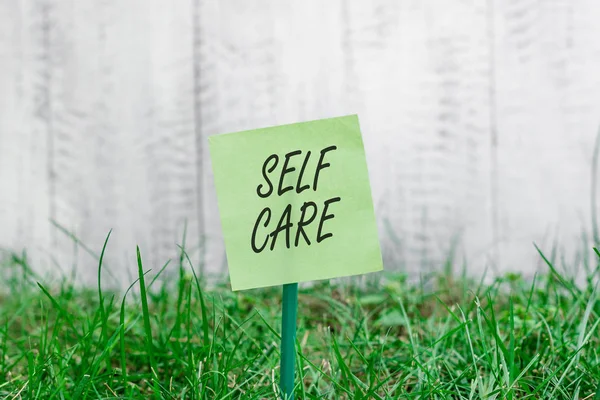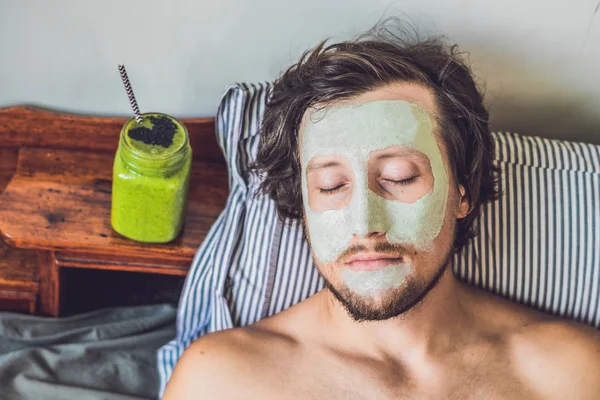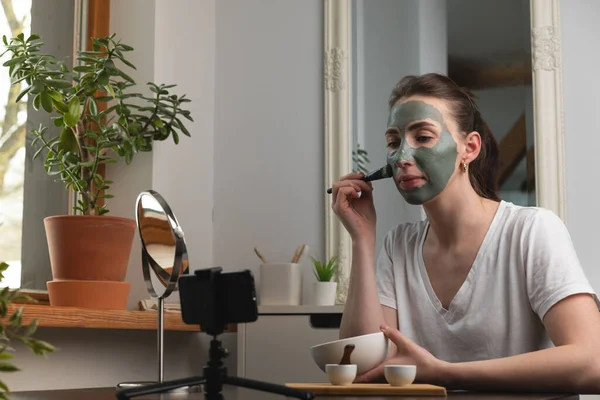
The importance of self-care and how to make it a priority in your life
Let's be real - life can be tough. From work stress to family obligations, it's easy to get caught up in the daily grind and forget about taking care of ourselves. But neglecting our own well-being can have serious consequences, both physically and mentally. That's why self-care is so important - it's not just a buzzword or a trendy hashtag, it's an essential part of a healthy lifestyle.
Now, I know what you might be thinking - "Self-care? Who has time for that?" And trust me, I get it. It can be hard to prioritize ourselves when we have so many other responsibilities and commitments. But the truth is, self-care doesn't have to be time-consuming or expensive. It's simply about taking small, intentional actions to nourish your mind, body, and soul.
In this blog post, I'll be sharing some of the benefits of self-care, as well as practical tips and strategies for making it a priority in your life. And don't worry, I'm not here to lecture you or make you feel guilty - I'm just a fellow human who's been there, done that, and wants to help you on your own self-care journey. So let's dive in and learn how to give ourselves the love and attention we deserve!
Benefits of Self-Care

Self-care isn't just about treating yourself to a bubble bath or a massage (although those things are definitely nice). It's also about taking care of your physical, mental, and emotional health in a holistic way. Here are just a few of the many benefits of practicing self-care:
A. Physical benefits
When we prioritize our physical health, we feel better both physically and mentally. Regular exercise, healthy eating, and getting enough sleep can all contribute to a stronger immune system, more energy, and better overall health. Plus, taking care of our bodies can help reduce the risk of chronic illnesses like heart disease and diabetes.
Of course, physical self-care isn't just about hitting the gym or eating kale salads every day. It's also about listening to your body and giving it what it needs - whether that's taking a rest day, going for a walk in nature, or indulging in your favorite comfort food.
B. Mental benefits
Self-care can also have a major impact on our mental health. Taking time to relax, de-stress, and do things we enjoy can help reduce anxiety and depression, boost our mood, and increase our sense of self-worth. When we prioritize our mental health, we're better equipped to handle the challenges of everyday life.
Of course, mental self-care looks different for everyone. Some people might find solace in meditation or yoga, while others might prefer reading a good book or spending time with friends. The key is to find what works for you and make it a regular part of your routine.
C. Emotional benefits
Finally, self-care can have a positive impact on our emotional health. When we take time to check in with ourselves, process our feelings, and practice self-compassion, we become more resilient and better able to cope with stress and adversity. Plus, by prioritizing our own emotional needs, we're better able to show up for the people we care about.
Emotional self-care can take many forms, from therapy or counseling to creative expression or time alone. Whatever helps you feel seen, heard, and supported is a valid form of emotional self-care.
Obstacles to Self-Care

While the benefits of self-care are clear, actually making it a priority in our lives can be easier said than done. There are plenty of obstacles that can get in the way of our self-care routine. Here are a few common ones, and some strategies for overcoming them:
A. Time constraints
One of the biggest barriers to self-care is simply finding the time to do it. We all have busy schedules, and it can be tough to carve out a few minutes for ourselves. But here's the thing: self-care doesn't have to take up a lot of time. Even just 10 minutes a day can make a difference.
If you're struggling to find time for self-care, try scheduling it into your calendar like you would any other appointment. Or, look for ways to multitask - for example, you could practice deep breathing exercises while you're stuck in traffic, or do some stretching while you're watching TV.
B. Guilt and shame
Another obstacle to self-care is the feeling of guilt or shame that can come with prioritizing ourselves over others. We're taught from a young age to put others first, and it can be hard to shake that mindset. But here's the thing: taking care of ourselves isn't selfish, it's necessary. When we're at our best, we're better able to show up for others.
If you're struggling with feelings of guilt or shame around self-care, try reframing your mindset. Remind yourself that you deserve to be taken care of, just like anyone else. And remember that taking care of yourself isn't a luxury - it's a necessity.
C. Financial constraints
Finally, there's the issue of finances. Let's be real - some forms of self-care can be expensive. Massages, spa treatments, and fancy gym memberships can all add up quickly. But here's the thing: self-care doesn't have to cost a dime. There are plenty of free or low-cost ways to take care of yourself.
If you're on a tight budget, try going for a walk in nature, practicing yoga at home, or taking a hot bath with some Epsom salts. You could also try doing a DIY spa day with items you already have at home. The point is, don't let finances be an excuse for not taking care of yourself. There are always creative ways to prioritize your own well-being.
Prioritizing Self-Care

Now that we've talked about some of the benefits and obstacles of self-care, let's get into some tips for actually making it a priority in your life. Here are a few strategies for prioritizing self-care:
A. Make a plan
One of the best ways to make self-care a priority is to actually schedule it into your day. This could mean setting aside a specific time each day for self-care activities, or even just putting a reminder in your phone to take a few deep breaths every hour. Whatever works for you, the key is to make it a habit.
B. Get support
Self-care doesn't have to be a solo activity. In fact, having support from friends, family, or a therapist can make it easier to stick to your self-care routine. Whether it's finding a workout buddy or checking in with a friend to discuss your progress, having someone in your corner can help you stay accountable.
C. Start small
Remember, self-care doesn't have to be a huge time commitment. In fact, starting small can be more effective in the long run. Try incorporating one small self-care activity into your day, like taking a few minutes to stretch or doing some deep breathing exercises. Once that becomes a habit, you can build on it from there.
D. Be flexible
Finally, it's important to remember that life happens. There will be days when you just can't stick to your self-care routine, and that's okay. The key is to be flexible and forgiving with yourself. Don't beat yourself up for missing a workout or skipping a meditation session. Instead, focus on getting back on track as soon as you can.
In the end, making self-care a priority is all about finding what works for you. Whether it's a daily yoga practice or a weekly bubble bath, the key is to prioritize your own well-being. As they say, you can't pour from an empty cup - so take care of yourself first, and the rest will follow.
Types of Self-Care

Self-care can take many forms, and what works for one person may not work for another. Here are a few types of self-care to consider:
A. Physical self-care
Physical self-care is all about taking care of your body. This could mean anything from going for a run to taking a relaxing bath. Some examples of physical self-care include exercise, getting enough sleep, and eating healthy food. The key is to find physical activities that feel good to you, and that you enjoy.
B. Emotional self-care
Emotional self-care is all about taking care of your mental health. This could mean anything from talking to a therapist to journaling about your feelings. Some examples of emotional self-care include meditation, spending time in nature, and practicing self-compassion. The key is to find activities that help you manage stress and boost your mood.
C. Social self-care
Social self-care is all about connecting with others. This could mean anything from having a coffee date with a friend to joining a book club. Some examples of social self-care include volunteering, attending social events, and spending time with loved ones. The key is to find social activities that feel fulfilling and energizing to you.
D. Spiritual self-care
Spiritual self-care is all about connecting with your inner self. This could mean anything from practicing yoga to attending a religious service. Some examples of spiritual self-care include mindfulness meditation, spending time in nature, and practicing gratitude. The key is to find spiritual activities that help you feel grounded and connected to something greater than yourself.
E. Intellectual self-care
Intellectual self-care is all about stimulating your mind. This could mean anything from reading a book to taking an online course. Some examples of intellectual self-care include learning a new skill, listening to a podcast, or engaging in creative hobbies. The key is to find intellectual activities that challenge you and help you grow.
In the end, the key to effective self-care is to find a balance of these different types. By prioritizing your physical, emotional, social, spiritual, and intellectual needs, you can create a well-rounded self-care routine that supports your overall well-being.
Making Time for Self-Care

One of the biggest obstacles to self-care is finding the time to actually do it. Here are a few strategies for making time for self-care:
A. Schedule it in
As we mentioned earlier, one of the best ways to make self-care a priority is to actually schedule it into your day. Whether it's a weekly yoga class or a daily walk around the block, find a time that works for you and stick to it. Treat your self-care time as an important appointment, just like you would a doctor's appointment or a work meeting.
B. Say no
Another important strategy for making time for self-care is to learn to say no. If your schedule is already packed with commitments, it can be tough to find time for self-care. Learning to say no to non-essential tasks or social engagements can free up valuable time for self-care activities.
C. Multitask
Sometimes, finding time for self-care is just a matter of getting creative. Look for ways to multitask self-care activities with other tasks you have to do anyway. For example, you could listen to a guided meditation while doing the dishes, or stretch while watching TV. This can help you fit self-care into your day without feeling like you're sacrificing other important tasks.
D. Let go of guilt
Finally, it's important to let go of any guilt or shame you might feel around taking time for yourself. Self-care isn't selfish - it's essential for your well-being. So if you find yourself feeling guilty for taking a break or prioritizing your own needs, remind yourself that you deserve to take care of yourself too.
In the end, making time for self-care is all about setting priorities and boundaries. By treating self-care as an important part of your daily routine, you can ensure that you're taking care of your own needs and living your best life.
Self-Care Practices

There are countless self-care practices to choose from, but here are a few ideas to get you started:
A. Take a bath
There's nothing quite like a warm, relaxing bath to help you unwind after a long day. Add some Epsom salts, essential oils, or bubbles to make it even more luxurious. Light some candles and put on some soothing music to create a spa-like atmosphere.
B. Journal
Journaling can be a powerful tool for processing emotions and working through challenges. Set aside some time each day to write down your thoughts and feelings. You could also try writing about things you're grateful for or setting intentions for the day ahead.
C. Practice mindfulness
Mindfulness is all about being present in the moment and fully engaged with your surroundings. You could try a guided meditation, practice deep breathing, or simply take a few moments to focus on your senses (what you can see, hear, smell, taste, and touch).
D. Get outside
Spending time in nature has been shown to have numerous benefits for mental health and well-being. Take a walk in the park, go for a hike, or simply sit outside and soak up some sun. Bonus points if you can find a body of water to enjoy - there's something about being near water that can be particularly calming.
E. Practice yoga
Yoga is a great way to get moving and connect with your body. There are countless styles of yoga to choose from, so experiment until you find one that feels right for you. Even a few minutes of gentle stretching and breathing can help you feel more grounded and centered.
F. Treat yourself
Sometimes, self-care is as simple as treating yourself to something you enjoy. Whether it's a fancy coffee, a piece of chocolate, or a new book, taking the time to indulge in something you love can be a powerful act of self-love.
Remember, self-care is all about finding what works for you. Don't be afraid to experiment with different practices and approaches until you find the ones that feel best. And most importantly, remember that self-care isn't a one-time event - it's an ongoing practice that requires regular attention and care.
Self-Care and Relationships

Self-care isn't just important for your own well-being - it's also essential for healthy relationships with others. Here are a few ways that self-care can impact your relationships:
A. Boundaries
Setting boundaries is a key part of self-care, and it can also be important for maintaining healthy relationships. When you know your own needs and limits, you're better able to communicate them to others and ensure that your relationships are balanced and fulfilling.
B. Communication
Practicing self-care can also help you communicate more effectively with others. When you're feeling rested, grounded, and centered, you're better able to express your thoughts and feelings in a calm and clear way. This can help you avoid misunderstandings and conflicts in your relationships.
C. Modeling healthy behavior
When you prioritize self-care, you're modeling healthy behavior for those around you. This can inspire others to take better care of themselves, and can also demonstrate that self-care isn't selfish - it's essential for a happy and healthy life.
D. Prioritizing relationships that lift you up
Self-care also means being intentional about the relationships you invest your time and energy into. Surrounding yourself with people who lift you up, support you, and make you feel good about yourself is an important part of self-care. By prioritizing these relationships, you're creating a positive and supportive network that can help you thrive.
E. Asking for help
Finally, self-care also means recognizing when you need help and asking for it when you do. Whether it's asking a friend to listen when you need to vent or seeking professional support for a mental health issue, asking for help is an important part of taking care of yourself - and it can also strengthen your relationships by creating opportunities for deeper connection and support.
In the end, self-care and relationships are deeply interconnected. By taking care of yourself, you're not only improving your own well-being - you're also creating a foundation for healthy, fulfilling relationships with those around you.
Self-Care for Different Stages of Life

Self-care is important at every stage of life, but the specific needs and challenges can vary depending on your age and circumstances. Here are some ways that self-care can be tailored to different stages of life:
A. Adolescence
Adolescence can be a challenging time, with lots of changes and transitions to navigate. Self-care for teens might include things like getting enough sleep, finding healthy ways to cope with stress, and building a support network of friends and family. It can also be important to explore new interests and hobbies, and to take time for fun and relaxation.
B. Young adulthood
In your 20s and 30s, self-care might involve finding a work-life balance, setting boundaries with your social and professional obligations, and making time for things that bring you joy and fulfillment. It can also be important to prioritize your physical health by eating well, exercising regularly, and getting routine checkups and preventive care.
C. Middle age
As you enter middle age, self-care might involve finding ways to manage stress and maintain your physical health, as well as taking time for self-reflection and personal growth. This might include exploring new hobbies or interests, taking classes or workshops, or seeking out therapy or coaching to work through any emotional or psychological issues.
D. Retirement
In retirement, self-care might involve finding new ways to stay active and engaged, as well as focusing on your mental and emotional health. This might include things like volunteering, traveling, or pursuing creative projects, as well as staying connected to friends and family and seeking out support if you experience any health issues or major life changes.
E. End of life
Even at the end of life, self-care is still important. This might involve finding ways to stay comfortable and manage any pain or discomfort, as well as staying connected to loved ones and finding meaning and purpose in your life. Hospice care can be an important part of end-of-life self-care, providing support and comfort to both the patient and their family.
Ultimately, self-care is a lifelong journey that evolves and changes as we move through different stages of life. By staying attuned to our own needs and finding ways to care for ourselves at every stage, we can live happier, healthier, and more fulfilling lives.
Conclusion
Self-care is often seen as a luxury or a selfish indulgence, but in reality, it's an essential part of living a healthy, happy life. By taking care of ourselves physically, emotionally, and mentally, we can better navigate the challenges and stresses of everyday life, and find more joy and fulfillment in the things we do.
If you're struggling to make self-care a priority in your life, remember that it doesn't have to be complicated or time-consuming. Simple things like taking a break when you need it, prioritizing rest and relaxation, and finding healthy ways to cope with stress can all make a big difference.
It's also important to remember that self-care isn't a one-size-fits-all approach. What works for one person might not work for another, and our needs can change over time. The key is to stay attuned to our own needs and to be open to trying new things to see what works best for us.
Ultimately, the most important thing is to make self-care a priority in your life. Whether you're a busy parent, a stressed-out student, or a retiree enjoying your golden years, taking time to care for yourself is the foundation for living a healthy, happy life. So go ahead and indulge in that bubble bath, take a yoga class, or simply take a few minutes to breathe and relax. Your body, mind, and spirit will thank you.
 Reviewed by jadan
on
March 11, 2023
Rating:
Reviewed by jadan
on
March 11, 2023
Rating:




No comments: